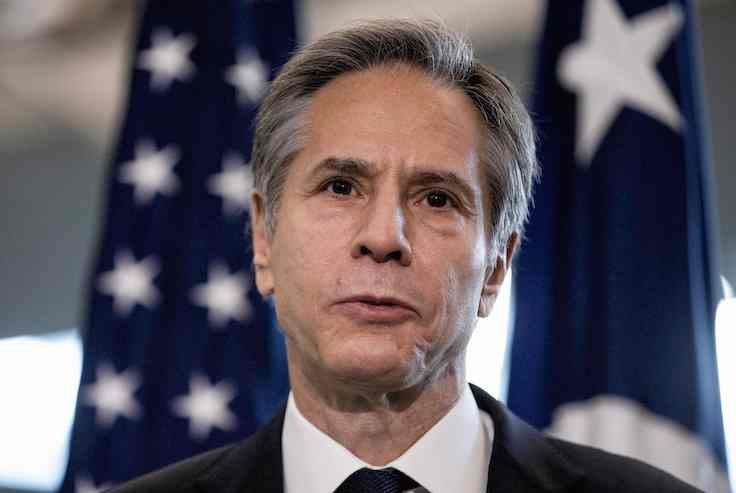Secretary of State Antony Blinken said Iran must end its nuclear buildup before the United States returns to the 2015 accord, comments likely to rankle Tehran as it continues to stockpile highly enriched materials that could be used in an atomic weapon.
Blinken said in response to reports that Iran is stockpiling enriched uranium, in violation of the international accord still being upheld by European powers, that the United States will negotiate when Iran recommits to promises made under the deal.
While the Biden administration has said that it wants to return to the nuclear agreement that President Donald Trump abandoned in 2018, Blinken said in his first televised interview on Monday that the United States will not lift sanctions until Iran halts its enrichment of uranium, the key component in an atomic weapon. Blinken's remarks signal a showdown is coming between the United States and Iran over its contested uranium enrichment program. Iran has increased the amount of uranium it keeps in the country over the past several months, blowing past caps established in the nuclear deal that prevent Tehran from stockpiling weapons-grade materials.
Iranian leaders announced last week that they will begin to decrease their level of cooperation with international nuclear inspectors until Western nations grant the country relief from tough economic sanctions. Iran also is pushing forward with the installation of 1,000 advanced nuclear centrifuges, which enrich uranium to the levels needed to power a weapon. Tehran is ahead of schedule on its plan to enrich uranium past the 20 percent threshold, activity that is prohibited under the nuclear deal and would bring Tehran closer than ever to weapons-grade materials.
A State Department spokesperson told the Washington Free Beacon it is aware of Iran's enrichment activities and is looking to the International Atomic Energy Agency to police Iran's behavior. "Iran should reverse course and return to its JCPOA nuclear commitments," the spokesperson said. "It is a long way from full performance of those commitments, but if it does so the United States would do the same in order to provide a diplomatic foundation for follow-on discussions."
Iranian leaders, however, say the country is poised to scale back cooperation with the IAEA. Kazem Gharibabadi, Iran's envoy to the Vienna-based International Organizations, dismissed the Biden administration's demands that the country end enrichment before getting sanctions relief. Gharibabadi said Iran would continue its nuclear work under new laws passed by the country's parliament that reduce its commitments under the deal.
Iran's atomic energy organization announced on Thursday that it made "great achievements" on the enrichment front, claiming the new nuclear projects have provided the country with yellowcake, a uranium powder that also can be used as fuel in a weapon.
The new advanced centrifuges are scheduled to be installed at Iran's Natanz nuclear facility within the next three months, according to reports carried in Iran's state-controlled press.
Saeed Ghasseminejad and Behnam Ben Taleblu, Iran experts at the Foundation for Defense of Democracies think tank, said Iran's moves are meant to pressure the Biden administration into removing non-nuclear sanctions, such as those impacting Iran's economy and its trade with Western nations.
"The greater the threat is perceived to be, the easier it is to convince people that the U.S. should remove the non-nuclear sanctions," Ghasseminejad said. "These sanctions have nothing to do with the JCPOA, so in a normal state of the world they should remain in place."
Taleblu said Iran's march toward 20 percent enrichment levels is about creating panic in the West. Iran "now believes it has little to lose and is adding more nuclear capability in the hopes of securing more sanctions relief," he said.
